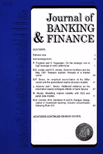Research article
 Authors: Santiago Carbó-Valverde, Edward J. Kane and Francisco Rodriguez-Fernandez
Authors: Santiago Carbó-Valverde, Edward J. Kane and Francisco Rodriguez-Fernandez
Title: Safety-net benefits conferred on difficult-to-fail-and-unwind banks in the US and EU before and during the great recession
Source: Journal of Banking & Finance
Abstract: This paper investigates the links between regulatory arbitrage, financial instability, and taxpayer loss exposures. We model and estimate ex ante safety-net benefits from increased leverage and asset volatility at a sample of large banks in US and Europe during 2003–2008. Hypothesis tests indicate that, in both crisis and precrisis years, difficult-to-fail-and-unwind (DFU) banks enjoyed substantially higher ex ante benefits than other institutions. Compared to the US sample, safety-net benefits prove significantly larger for DFU firms in Europe and bailout decisions are less driven by asset size. Introducing a proxy for differences in government susceptibility to regulatory capture helps to explain bailout decisions in Europe. Our findings suggest that authorities in both venues could better contain safety-net benefits if they refocused their information systems on monitoring volatility as well as capital.
View article
Recommended citation:
Carbó, S., E. J. Kane and F. Rodríguez (2013): "Safety-net benefits conferred on difficult-to-fail-and-unwind banks in the US and EU before and during the great recession", Journal of Banking and Finance, 37(6), June, pp. 1845-1859.






